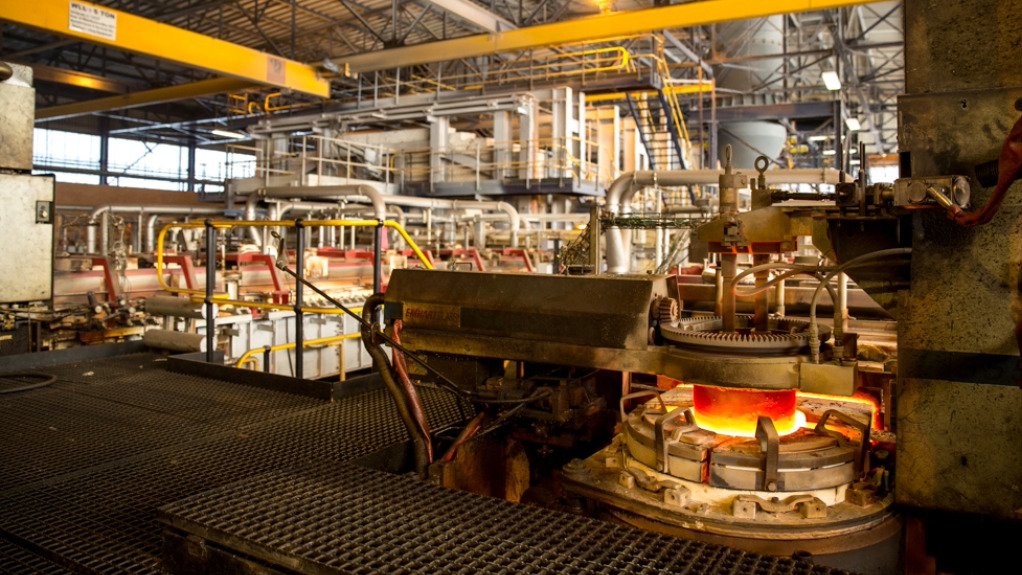Carbon-intensive power will hinder local manufacturers



KEEPING UP WITH THE CBAM For South African manufactures to maintain exports to clients in the EU they must conform to the soon to be implemented CBAM
PHILLIPA RODSETH The Manufacturing Circle executive director explains that the CBAM Industry Working Group was formed to prepare and align companies to the new regulations
It is anticipated that the implementation of the EU’s Carbon Border Adjustment Mechanism (CBAM), which will take effect in 2026, will significantly affect the South African manufacturing sector, says industry body Manufacturing Circle.
The adverse effect can be attributed to, and is compounded by, the high carbon intensity of the country’s electricity production, mostly generated from coal and generally much higher than the carbon intensity of other exporting competitor countries.
Consequently, the CBAM Industry Working Group was formed to assist the industry in adjusting to these changes, Manufacturing Circle executive director Philippa Rodseth tells Engineering News.
“The Industry Working Group is an initiative based on the assumption that CBAM is here to stay, but there is room to negotiate better terms for South Africa’s manufacturing sector.”
She stresses that it is critical to prepare and align companies in the manufacturing industry to the new regulations and facilitate proactive engagement between industry and government.
This engagement, in turn, needs to inform and determine a holistic industrial policy approach with a key objective being the development of a firm position across the South African industrial sector on CBAM implementation issues, while outlining the scope and phasing of implementation.
“We will also develop proposals regarding policy interventions to mitigate the impact of CBAM and will align these interventions with the South African Just Energy Transition Roadmap and various decarbonisation efforts,” Rodseth says.
Carbon Mitigation Collective
The initiative is an open forum, with the Manufacturing Circle being one of the facilitators. Other entities involved include metals industry bodies the Steel and Engineering Industries Federation of Southern Africa and the Aluminium Federation of South Africa, as well as affected companies.
“The National Cleaner Production Centre South Africa (NCPC-SA) is also a key stakeholder in this exercise. Its involvement comprises research provision, subject matter expertise and its facilitating communication between industry and government,” Rodseth points out.
Partnering with industry and stakeholders, such as the Manufacturing Circle, is one way of driving sustainability and resource efficiency, thereby entrenching a cleaner production approach in the South African manufacturing sector, says NCPC-SA business support and communication manager Julie Wells.
“As a national industry support programme, the NCPC-SA can significantly enhance the effectiveness of the CBAM Industry Working Group by fostering collaboration among key stakeholders, including government, industry, and research institutions,” she enthuses.
One of the ways in which the NCPC-SA is fostering collaboration is by creating platforms such as the biennial sustainable industries conference – with one being held last month. The conference focused on “taking the decarbonisation bull by the proverbial horns”, and sought means of enabling circularity in industry.
The two-day programme, held at the Council for Scientific and Industrial Research International Convention Centre, in Pretoria, was fully recorded, and content is available on the NCPC-SA website and social media platforms, further advancing the decarbonisation discussion.
“CBAM was discussed in the conference opening plenary, including the risk it poses for exporters of iron and steel, aluminium and cement,” stresses Wells.
The conference discussed not only the need for alternative electricity but also what companies could practically implement to reduce their carbon footprint, including broader energy management, and adapting to new regulations effectively.
The NCPC-SA is also focusing on data collection and analysis for the working group. By supporting the collection of emissions data and conducting thorough analyses, the centre can provide valuable insights on industry performance and compliance levels, which are crucial for informed decision-making.
“Our principals at the Department of Trade, Industry and Competition (dtic) are continuously negotiating with our global partners,” states Wells, adding that what is required, is to prove to the EU that South Africa is working to decarbonise its economy.
“We, at the NCPC-SA, are available to partner with industry to come up with accurate and useful information about carbon footprints and develop pathways through the challenges facing our industries.”
Much More To Be Done
Rodseth says it is critical for industry to address the CBAM matter proactively: “. . . we need to engage directly with government and researchers and work together to find solutions on CBAM for both large and small exporters.”
While a collaborative approach is needed domestically, South African manufacturers need more time to implement CBAM-compliant measures and this extension needs to be negotiated with the EU, she reasons.
To be effective, participation by and engagement within a broader ecosystem is required, including from multiple government departments – such as the dtic, the Department of Forestry, Fisheries and the Environment, and the National Treasury – and economic research institution Trade and Industrial Policy Strategies.
An offensive strategy needs to be considered in response, as time is needed to decarbonise South Africa’s heavy manufacturing industries through large-scale renewable-energy rollout and new production processes.
“We need to fast-track low carbon energy transitions and foster the roll-out of new production processes, supported by active diplomacy to provide time and resources to adapt and implement decarbonisation measures,” concludes Rodseth.
Article Enquiry
Email Article
Save Article
Feedback
To advertise email advertising@creamermedia.co.za or click here
Press Office
Announcements
What's On
Subscribe to improve your user experience...
Option 1 (equivalent of R125 a month):
Receive a weekly copy of Creamer Media's Engineering News & Mining Weekly magazine
(print copy for those in South Africa and e-magazine for those outside of South Africa)
Receive daily email newsletters
Access to full search results
Access archive of magazine back copies
Access to Projects in Progress
Access to ONE Research Report of your choice in PDF format
Option 2 (equivalent of R375 a month):
All benefits from Option 1
PLUS
Access to Creamer Media's Research Channel Africa for ALL Research Reports, in PDF format, on various industrial and mining sectors
including Electricity; Water; Energy Transition; Hydrogen; Roads, Rail and Ports; Coal; Gold; Platinum; Battery Metals; etc.
Already a subscriber?
Forgotten your password?
Receive weekly copy of Creamer Media's Engineering News & Mining Weekly magazine (print copy for those in South Africa and e-magazine for those outside of South Africa)
➕
Recieve daily email newsletters
➕
Access to full search results
➕
Access archive of magazine back copies
➕
Access to Projects in Progress
➕
Access to ONE Research Report of your choice in PDF format
RESEARCH CHANNEL AFRICA
R4500 (equivalent of R375 a month)
SUBSCRIBEAll benefits from Option 1
➕
Access to Creamer Media's Research Channel Africa for ALL Research Reports on various industrial and mining sectors, in PDF format, including on:
Electricity
➕
Water
➕
Energy Transition
➕
Hydrogen
➕
Roads, Rail and Ports
➕
Coal
➕
Gold
➕
Platinum
➕
Battery Metals
➕
etc.
Receive all benefits from Option 1 or Option 2 delivered to numerous people at your company
➕
Multiple User names and Passwords for simultaneous log-ins
➕
Intranet integration access to all in your organisation




















